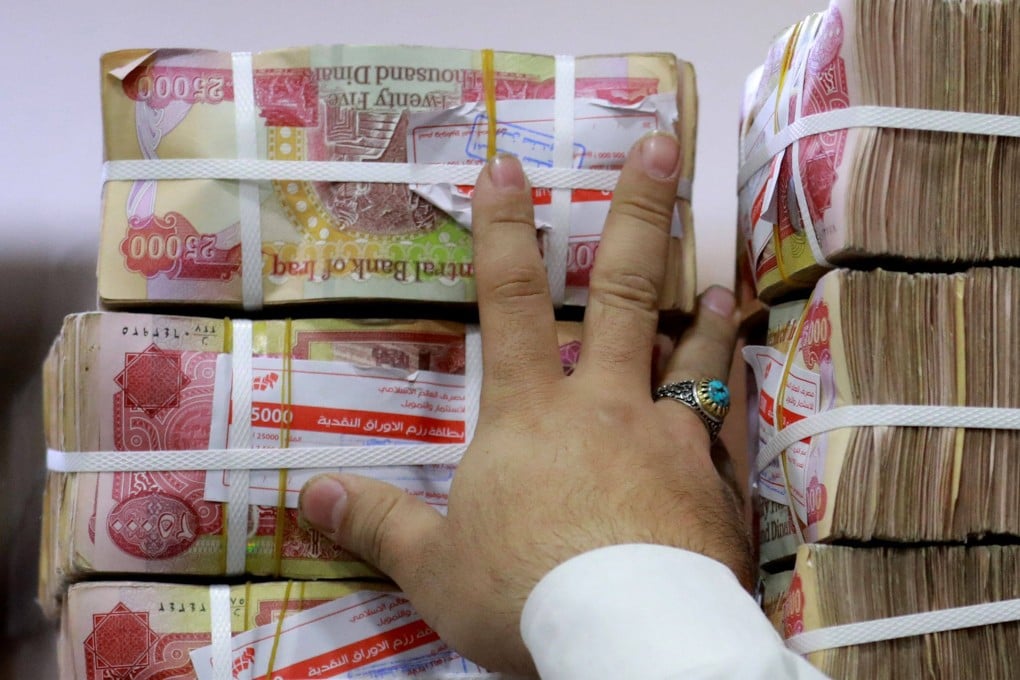Advertisement
Iraq’s trade with China may be settled in yuan, but oil exclusion seen trivialising the move
- China has sought for years to internationalise the yuan, but recent moves by Iran and Russia are far from initiating ‘real, meaningful change’
- President Xi Jinping had called in December for energy trade with Middle East to be settled in yuan over the coming years, but some analysts say this is unlikely to happen
Reading Time:3 minutes
Why you can trust SCMP
8

Iraq’s decision to allow trade with China to be settled in the yuan for the first time will not significantly advance the latter’s long-held goal of internationalising its currency, according to academics.
The move by Iraq’s central bank also will not include its oil trade, according to Mudhir Salih, an economic adviser for the government, who was quoted by Reuters on Wednesday.
Crude oil comprises the vast majority of the Middle Eastern country’s exports, and President Xi Jinping proposed in December at the China-Arab Summit that oil and gas trade among six Gulf Cooperation Council states be settled in the yuan within three to five years.
Advertisement
But instead of oil, the Iraqi central bank said it will allow for private sector imports to be paid off in the yuan, and the bank will provide the Chinese currency to Iraqi lenders to pay their Chinese counterparts.
“It is the first time imports would be financed from China in yuan, as Iraqi imports from China have been financed in [US] dollars only,” Salih said.
Advertisement
Advertisement
Select Voice
Choose your listening speed
Get through articles 2x faster
1.25x
250 WPM
Slow
Average
Fast
1.25x